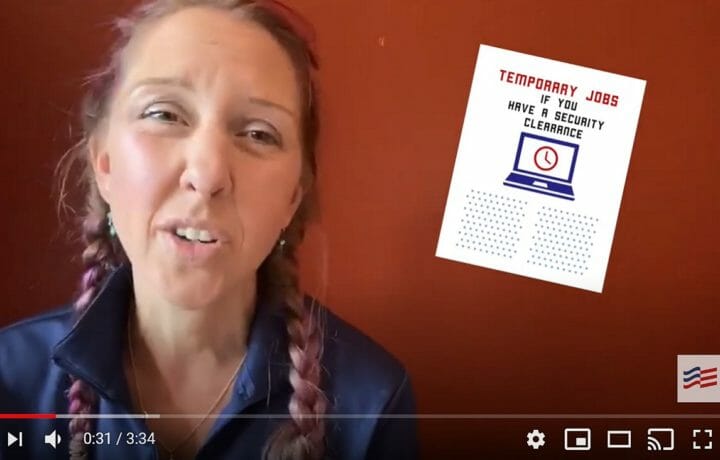Your summer vacation was cancelled and now you’re trying to decide what to do with those extra two weeks of vacation time. Or maybe you’re in the process of changing jobs, but find yourself with a two or three month employment gap while you await the federal government’s even slower than usual COVID-19 onboarding process. If filling your hours with a temporary job or moonlighting as a national security worker was a consideration, you’ll be glad to know – it’s possible. But you’ll want to keep a few things in mind.
There are multiple scenarios where an individual may be considering a temporary cleared position. Besides the most obvious temp-to-hire placements, sometimes cleared professionals find themselves with a gap in employment prospects. Perhaps you left a contract job and are moving into a position with the intelligence community, but they’ve let you know it will be another six months before they can onboard you. Maybe you applied for a position months ago and were just notified by your facility security officer that your clearance came in – but your hiring manager says the position won’t actually begin for another 45 days. Can you accept a temporary clearance job?
Yes. It’s okay to work a temporary cleared job, regardless of the reason. But what is crucial to keep in mind is you’ll want to be completely up front with all parties involved, in order to avoid any potential clearance issues down the road. If you’re currently employed, you’ll need to let your employer know what contract or temp work you’re considering, and ensure it doesn’t violate any company or agency rules. If you’re in an onboarding process that has met delays, make sure your potential future employer is aware. And also let the company hiring you for temp work know what your plans are and who is currently sponsoring your clearance.
Your clearance details will be kept in a security clearance system of record – JPAS, DISS, or Scattered Castles. If you have the terrible misfortune of having a red flag placed on your security clearance by your temporary employer, you may have issues onboarding into new full time employment. You’ll either need to work through the security issue with your current employer, or hope your new employer is willing to address them with you. Otherwise you may find yourself without either job and in clearance limbo.
Also, keep in mind that federal contracting companies are generally required to onboard a new hire who has obtained a security clearance within 30 days – it’s a part of the sponsoring agreement. So, even if they say the job is delayed, check in with your security officer and make sure they’re aware of the policy.




